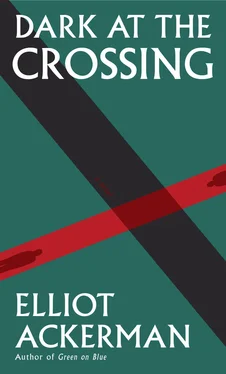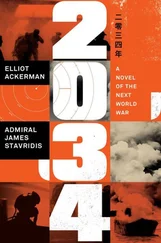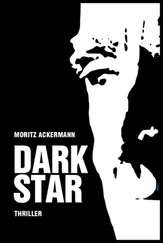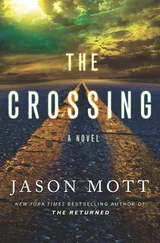Of his family, he had no single memory of them together, his mother having died in childbirth with his sister, Samia, when he was six. His first home had been on the riverbank. The high marsh grass abutting a simple compound of thick, coarse cement, his mother walking him down to the bank through the brushing grass, his father returning from whatever construction job he worked with the same cement hard on his clothes — memory was texture. Soft grass. Hard cement.
Haris leaned his head against the cracked window. The cold glass touched the bald spot, which, only in the last few months, had spread from his crown. His reddish hair was unusually light, an uncommon but not impossible shade for an Arab, evidence of some recessive trait. Past the glass, farmers’ fields flanked the road, spanning in all directions. Clods of harvested earth littered the fields. They stank with a wet-dirt smell. In places the dead stalks of the harvest burned in the dawn, which seemed to rise from the land itself, and the farmers cleared the fields, readying them for winter and the next season’s planting.
Haris thought how fertile and lush the land seemed. To live here was to be blessed. He’d always believed that was why life in Nasiriya had been violent and poor — but for the river the land was desert, everything scarce, scarcity breeding violence. Just across this border, in Syria, around cities like Aleppo and Azaz, the land was the same as what passed by Haris’s window — rich, wet, harvested. These three years, violence had spread there, as surely as if the land were desert, the people failing the land and what had been given them.
The meter on the dash steadily climbed, blinking close to a hundred Turkish lira. Strewn across the soaked and smoky farm fields were the sagging tents of refugee families. Outside the tents, lost-eyed men sat on plastic chairs, watching the highway. Children played in the churned mud. They chased a dog whose ribs sucked at its sides, taunting it with sticks. When the dog got away, they taunted a child who was slower than the dog.
The rows of tents thickened as the D850 ran closer to Kilis. At the town’s limit, the refugees disappeared. The streets became clean. Curbs sprung up on the side of the road, checkered yellow and white, the paint fresh. Where many roads met, roundabouts had been built. Their centers were planted with flowers, tulips mostly. Everywhere traffic lights hung between side posts, changing in unison, swaying on their wires in an uneven wind. The war and the border were less than a kilometer away, and Haris felt there was something cruel in how Kilis thrived despite its proximity to suffering.
The cabdriver pulled up to a stoplight, for a final left turn. From the roadside, a pack of children, their clothes oily with filth, rushed the taxi. Their voices chattered wild as morning birds. The cabdriver ignored their pleas until one boy knocked a little fist against the taxi’s door. The cabdriver rolled down his window to curse the boy. Before he could, the children reached their arms inside, clamoring for some charity. The cabdriver swatted at them, shouting the only words of Arabic he seemed to know: “Airy fic! Airy fic!” But the children wouldn’t “fuck off.” They wouldn’t move. A pair now stood in front of the taxi, blocking its way.
Unlike the cabdriver, Haris understood the pleading boys. He rolled down his window and pointed to a plastic shopping bag carried by the eldest, who was no more than fourteen, just a child with an Adam’s apple, his jet-black hair slicked back with what was likely pomade but could well have been engine grease. This boy offered up the plastic sack to Haris. The others calmed, sensing Haris might buy one of the cheap knickknacks they hawked. Before they could strike a deal, the cabdriver pointed to the pair who had stepped in front of his taxi. The boy with the black hair nodded in their direction. The pair stepped out of the way.
Haris fingered through the plastic bag — a wooden comb, fingernail clippers, a cigarette lighter.
“Five lira for anything,” announced the boy with the black hair, his mouth curling into a sly grin around his wide-spaced teeth.
Haris reached through the window, taking the lighter from the bag, which he passed back to them. “How about this?” he asked, digging a few coins from his pants pocket. A younger boy had approached Haris’s window. He was skinny, his face grained in dirt, but he had very clear gray eyes, which watched Haris from behind a pair of thick glasses, their right lens missing. Instead of passing his coins to the sly boy with the black hair, Haris reached toward this other, weaker boy.
Before Haris could pay, the light went green. The cabdriver sped through the intersection, pinning Haris to his seat. As he sat up, Haris tossed a handful of change out his window. He then glanced through the cab’s rear windshield. The boys scrambled down the road. The boy with the black hair pried their bodies apart as they wrestled for what Haris had left behind, all except for the younger boy, who, very calmly, stood on the curb and cleaned the one lens of his glasses with the dirty hem of his shirt.
—
The border crossingin Kilis smelled of sharp, acrid smoke. A pair of Turkish flags — a white crescent pinching a white, five-pointed star on a red banner — flanked what to Haris looked like a rest stop on the interstate. Just past the crossing, in the Syrian town of Azaz, explosions came— CRUMP, CRUMP, CRUMP —the noise like soda cans crushed underfoot. The impacts set off a few distant car alarms. Smoke towered upward, running along the horizon like black stitches, fastening earth to sky.
Haris shouldered his heavy hiking pack. He stood in the dust of the gravel parking lot. The cabdriver pulled back onto the road. It had been a few years since Haris had come near such violence. He remained motionless, transfixed by its familiar power, as if he’d just put an old name to a forgotten face.
Refugees from the morning’s fighting crowded the roadside. Some sat straddling their cheap, flimsy suitcases. Others squatted in the dirt with nothing. Few spoke. Those who did whispered. The crowd’s attention held on Azaz.
Haris checked his phone for an email from Saladin1984, his contact and fixer in the Northern Storm, a supposedly good brigade of the Free Syrian Army. There were no messages. It was Saladin1984 who’d recruited him to the cause, forwarding along a steady stream of treatises, manifestos and videos, each with an array of political demands that at times Haris found dizzying despite his growing commitment to these ideas. Some materials called for the establishment of a free and democratic Syria, others the removal of President Bashar al-Assad, and many a combination of the two. Haris now composed Saladin1984 a message, explaining that he’d arrived and was ready to cross the border. As he finished, another CRUMP came, then more smoke, followed by the manic pop, pop, pop of rifle fire. A collective sigh went up from those stuck along the border, as if in a crowded airport terminal a final flight’s cancellation had just been announced. A few of the refugees lay down on the cold earth, as though they’d chosen to take a nap. Others wandered aimlessly along the road toward Kilis. In the parking lot’s corner, some pressed into a small café run out of an abandoned shipping container, where a squat Syrian man with a push-broom mustache served bitter tea in curved glass cups.
You came to fight, Haris told himself, looking at the distant smoke blooming from Azaz. They’re fighting right there. You’ve fought before— No, he reminded himself. You’ve been around fighting before. There’s a big difference. So are you going to do what you came to do?
Haris tightened down the straps on his hiking pack. He plodded toward the Plexiglas guard booth at the border crossing, feeling the refugees’ puzzled looks on him — it was absurd for anyone to walk in the direction they’d just come from. These are the ones who abandoned their country, thought Haris. The Syrians on the other side will be different. Then he remembered how his father had abandoned him and Samia to a chorus of aunts and uncles after their mother died, disappearing into his work, then disappearing altogether, only for Haris to mimic his father — or so he feared — by abandoning his own country to resettle in America with his sister.
Читать дальше












